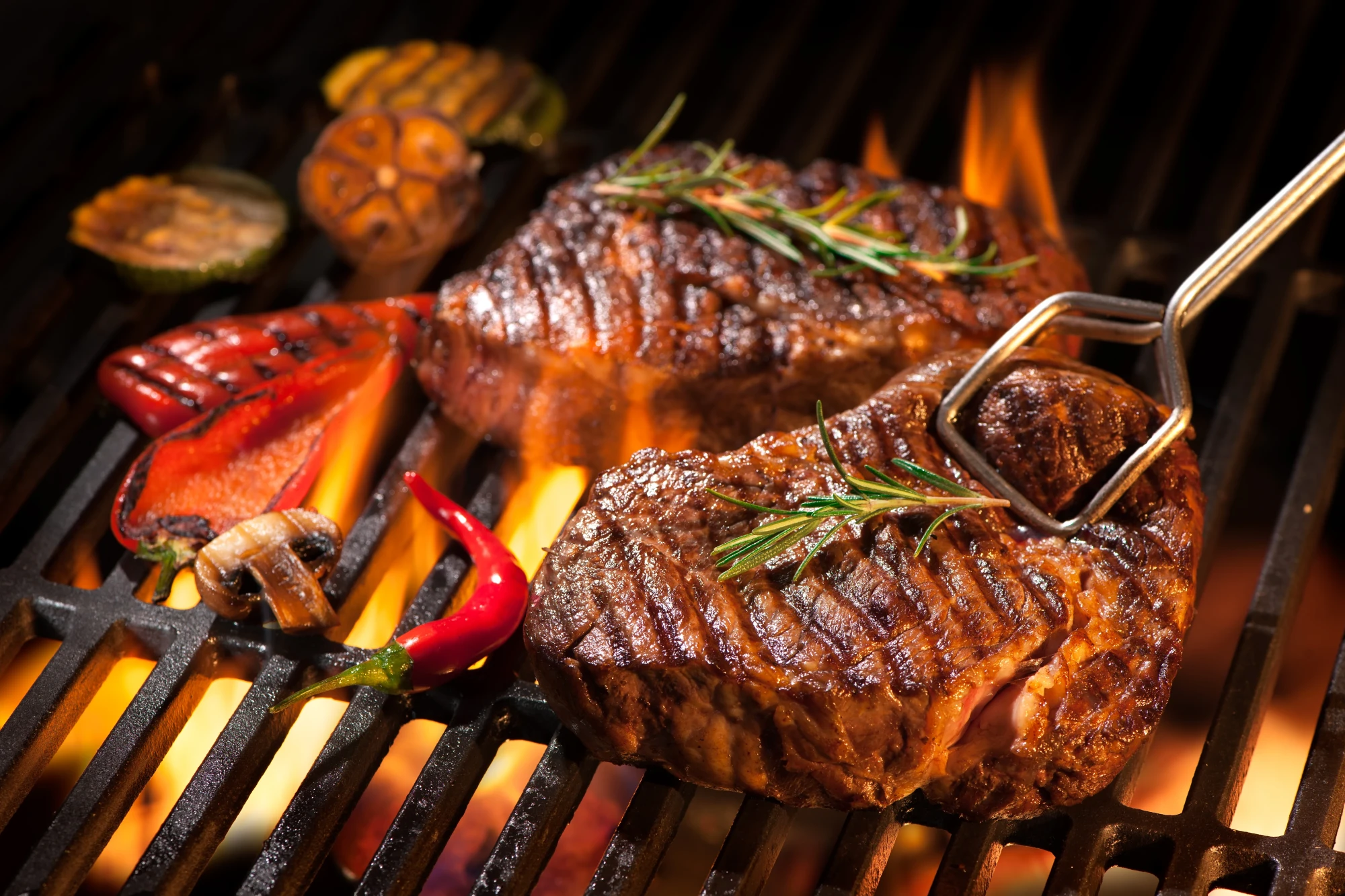News & Articles

Myths About Carcinogens & Cancer-Causing Foods

Does BBQ cause cancer?
Parkway Cancer Centre’s Dr Patricia Kho corrects some myths about carcinogens and which foods can cause cancer.
Carcinogens are substances or compounds that can cause cancer. They do so in two ways: either by directly damaging the DNA in the cells, causing mutations which then disrupt the normal processes of cells, or by causing cells to divide faster than normal, which increases the chance of altering the DNA.
There are several types of carcinogens and they can be absorbed into the body in different ways. These include inhalation, ingestion, or absorption through exposure.
While carcinogens can be found everywhere, however, exposure to them does not necessarily mean that you will get cancer.
It depends on factors such as how long you are exposed to them, how much carcinogens is absorbed, and your own health and lifestyle. Your risk of getting cancer as a result of carcinogens also depends on your genetic make-up; cell damage is often the result of interaction between the genes and external carcinogens.
Broadly speaking, there are the three main types of carcinogens – physical, chemical and biological:
Physical: High doses of high-energy radiation such as ultraviolet (UV) rays from the sun, X-rays and ionising radiation can cause cancer. Low-energy waves such as radio waves and microwave radiation are generally not carcinogenic.
Chemical: Exposure to asbestos can result in cancer. But tobacco is by far the biggest cause of cancer, yet most preventable. Exposure to tobacco – either by smokers or through passive smoking – can lead to cancers of the lung, throat, mouth, pancreas, bladder, stomach, liver and others.
Biological: Some infections caused by viruses can lead to cancer. They include Hepatitis B (liver cancer), human papillomavirus or HPV (cervical cancer), helicobacter pylori (stomach cancer), schistosomes (bladder cancer), the liver fluke (cancer of the bile duct) and human immunodeficiency virus or HIV (kaposi sarcoma or lymphoma). Mycotoxin, a toxic chemical product produced by fungi which may be found in contaminated food, can also cause liver cancer.
While the danger of getting cancer from overexposure to carcinogens is real, there are many myths concerning them. Getting the facts right and understanding the risks can help you avoid or reduce your exposure to carcinogens in the right way, lowering the risk of getting cancer.
Myth: Barbecued food can cause cancer
Fact: Eating meat cooked at high temperatures increases the risk of cancer Barbecuing food and cooking meat at a high temperature can produce compounds such as heterocyclic amines (HCAs) and polycyclic aromatic hydrocarbons (PAHs), which are known to be carcinogenic in animal studies.
As the evidence is unclear at present, it may be prudent to take precautions such as avoiding exposing meat to high temperatures or cooking it over an open fire. The easiest, of course, is to avoid eating the burnt parts of the meat – even though these may be the best part!
Myth: Deep fried food can cause cancer
Fact: Deep frying food at high temperatures can increase the risk of cancer Deep frying food can produce acrylamide, a carcinogen that may be associated with a higher risk of cancer. Try to avoid consuming large amounts of high-fat foods that are deep fried, as they contain large amounts of fats. Instead, try to use unsaturated oils such as canola oil, corn oil, soybean oil and sunflower oil to fry your food.
Aim for a golden yellow colour or lighter when frying, baking, toasting or roasting starchy foods like potatoes and bread, as the duration and temperature of cooking also determine the amount of acrylamide produced.
Myth: Alcohol is a carcinogen
Fact: Alcohol (ethanol) is converted into acetaldehyde in our bodies. It can cause cancer by damaging the DNA
When we consume alcohol, it is converted into acetaldehyde, a chemical that is toxic to our bodies as it can damage the DNA and prevent the cells from being repaired. This can in turn lead to a higher risk of cancer. Acetaldehyde also causes liver cells to grow faster than normal. These regenerating cells are more likely to pick up changes in their genes that could lead to cancer.
Regular alcohol consumption can also lead to an increase in certain hormones, such as oestrogen. Unusually high levels of oestrogen can increase the risk of breast cancer.
Excessive alcohol drinking has been linked to certain cancers such as head and neck cancers, breast, oesophageal, liver and bowel cancer. The larger the quantity of alcohol you drink and the longer you do so, the higher the risk of cancer.
The less alcohol you drink, the lower the risk. No type of alcohol is better or worse than another, it is the alcohol itself that leads to the damage, regardless of whether it is in wine, beer or spirits. And drinking and smoking together are even worse for you.
The key is moderation. If you do drink, limit yourself to the recommended amount which is two servings per day for men and one serving per day for women.
Written by Kok Bee Eng
| POSTED IN | Nutrition |
| TAGS | cancer mutation, carcinogen, healthy food & cooking, misconceptions |
| PUBLISHED | 07 February 2018 |
